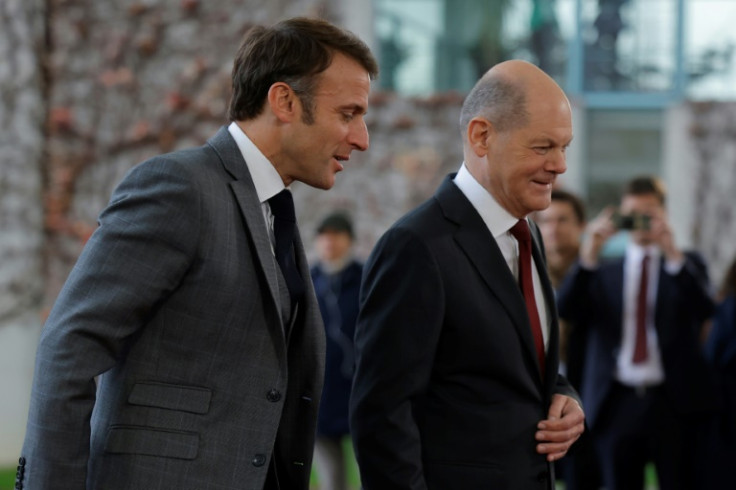
European countries have promised only low-key military support to counter Houthi rebel attacks on Red Sea shipping, as they balance geopolitical and domestic concerns with economic fears.
US and British forces have bombed the Yemeni rebels since Friday in response to mounting Houthi missile attacks on vessels in the vital shipping lanes since the Hamas' October 7 attack on Israel.
But many EU capitals have been leery of committing their forces, although the bloc's foreign ministers will discuss the crisis in Brussels on January 22.
Arab and Israeli representatives have been invited, although none have so far confirmed their attendance.
The Houthis originally said they were attacking Israeli-linked vessels. But since Friday they have added British and American interests to their "legitimate targets".
The growing risks for Red Sea shipping were underscored Tuesday when a Greek freighter was hit by a missile off the Yemeni coast.
Disruption eline "is not for the moment apparently creating consequences on energy prices and inflation" in the EU, economy commissioner Paolo Gentiloni said Monday. He added that the fallout could hit "in the coming weeks."
Diplomatic sources said the EU hopes to complement the US-led "Prosperity Guardian" operation, which has backing from Germany and the Netherlands.
There "seems to be a large degree of consensus on the need to act quickly and pragmatically," one EU diplomat told AFP, suggesting that a France-led mission in the Gulf and Straits of Ormuz could be expanded.
France and other nations have had vessels in the Gulf since 2019 guarding against pirate attacks.
The European Union's diplomatic service has proposed the mission should consist of three frigates, and officials hope to finalise the plan by the next foreign ministers' meeting in February.
Defense ministers from France and Italy said Tuesday they would support "a European mission that could also be joined by non-EU member countries who share the priority of free navigation".
Spain has refused any role in a Red Sea mission, keeping out of the conflict for domestic political reasons.
Meanwhile, Italy's frigate Virgilio Fasan was joined in the Red Sea this month by a second, the Federico Martinengo, according to Italian media reports.
But French and Italian warships in the region have not taken part in the US-led mission.
"We cannot join in sudden acts of war without authorisation from parliament, even if they aim at protecting international sea traffic," Italian Foreign Minister Antonio Tajani said Friday.
A French frigate, the Languedoc, has twice shot down Houthi drones since November 9 in "self-defense" but cannot join strikes on Yemen because of its rules of engagement, France's Indian Ocean commander Rear Admiral Emmanuel Slaars said recently.
Paris wants tight national control over its forces, but "we parcel out our efforts smartly across the geography and share information" with allies, Slaars added.
France is avoiding "publicly following the US in a systematic way," said Pierre Razoux, academic chief of the Mediterranean Foundation for Strategic Studies (FMES).
He added that Paris is communicating its "wish to avoid sparking an escalation with Iran," which backs the Hputhis as part of its anti-Israel "axis of resistance".
"Having been seen as too pro-Israel at the start of the conflict, which negatively impacted its relations with the Middle East, France is trying to get back to a balanced position," said Camille Lons, a researcher at the European Council on Foreign Relations (ECFR).
The US "is clear (that) this is not about the war in Gaza, this is about freedom of navigation," said Alessio Patalano, a specialist in maritime strategy at King's College, London -- but that message has not been heard in some Arab nations.
At stake for France and other EU countries are ties with crucial Middle Eastern partners, especially Egypt and Saudi Arabia -- neither of which have supported the American strikes.
Paris may be also concerned about its position in Djibouti, where it has about 1,000 troops, as well as the United Arab Emirates, home to another French base.
Djibouti said last week that there would be "absolutely no" deployment of missiles by the US or any other country on its soil.







